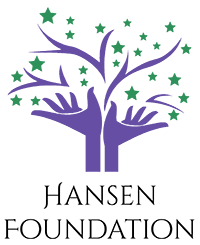Good nutrition is a vital part of recovery from substance use disorder. Substance abuse frequently leads to poor nutrition because people struggling with an addiction either aren’t taking in enough calories throughout the day or are making poor food choices.
According to David Wiss, founder of Nutrition in Recovery, many people in the West aren’t eating well, either. Part of the problem is the prevalence of highly processed foods, which, he says, is contributing to metabolic disease and may be causing an increase in depression and anxiety as well. Highly processed foods are frequently low in fiber and high in sugar. When a person who has been eating highly processed food enters treatment for drug or alcohol abuse, their primary source of dopamine (drugs) is gone, and post-detox they can gravitate towards caffeine, sugar, and possibly nicotine. “Old wisdom from the recovery community would suggest that a liberalized approach to sweets, nicotine, and caffeine is favorable to help the individual get past the immediate crisis,” writes Wiss in an article that appeared in Psychology Today. However, “New wisdom suggests that this behavior is a form of cross addiction that should be addressed early in recovery.” If you or someone you know is contemplating entering a facility to recover from addiction to drugs or alcohol, it is important to make sure that the facility pays careful attention to nutrition and teaches about nutrition and wellness.
What Should You Eat in Recovery?
In recovery, you are working to heal your body and your brain. Therefore, you want to eat as well as possible. Focus on eating whole foods, defined as “…any fruit, vegetable, grain, protein, or dairy product that has not been artificially processed or modified from its original form.” (US News and World Report, “You’re in Recovery, What Should You Eat,” 2018). Avoid sugary beverages, artificial sweeteners, refined grains, and fried foods. If possible, eat organic food. Organic fruits and vegetables are often fresher and are not grown using synthetic pesticides, which reduces exposure harmful chemicals. Organic farming is also better for the environment in that it reduces pollution, conserves water, reduces soil erosion, and uses less energy. Organically raised animals are not given antibiotics, growth hormones, or fed animal byproducts.
Another alternative is to purchase locally grown food. If you buy locally grown food, typically from a farmers’ market of a food co-op, the produce is typically fresher because it hasn’t had to travel as far to get to market. In addition, if you buy local, you are supporting a local small business.
Foods That Improve Brain Chemistry
According to a recent article in US News and World Report (“You’re in Recovery, What Should You Eat,” 2018), there are specific foods that are especially good to eat in recovery because of the role they play in boosting the brain. For example, the amino acid tyrosine is a precursor to dopamine, the neurotransmitter associated with feeling good. Dopamine is typically at a very low level in early recovery, which can lead to low energy and motivation, a depressed mood, and substance cravings. Foods that contain tyrosine include bananas, sunflower seeds, lean beef, pork, lamb, whole grains, and cheese.
Eat foods rich in L-glutamine, an amino acid that boosts the immune system. These foods can help reduce sugar cravings, which is important because sugar consumption is linked to higher rates of depression, anxiety, and inflammation. These foods include kale, spinach, parsley, beets, carrots, beans, Brussels sprouts, celery, papaya, beef, chicken, fish, dairy products, and eggs.
Foods that contain a lot of antioxidants also boost the immune system and these include berries, leeks, onions, artichokes, and pecans. Make it a point to eat foods that boost levels of GABA, a neurotransmitter that leads to feelings of calm and relaxation. Low levels of GABA can lead to anxiety, restlessness, and insomnia. Foods that have been found to increase levels of GABA include kefir, shrimp, and cherry tomatoes.
Lastly, include foods that contain tryptophan in your diet. Tryptophan can boost levels of serotonin, which is associated with feelings of well-being and happiness. Serotonin helps with sleep and digestion. Foods containing tryptophan include cheese, turkey, lamb, pork, tuna, oat bran, beans, and lentils.
What to Look for in a Recovery Program
Because of the important role that nutrition plays in successfully recovering from an addiction, it is vital to select a treatment program that stresses nutrition. A good program will offer nutrition and wellness counseling and/or education. A healthy diet, focused on whole foods, helps the body and brain to heal. In some programs clients will learn or relearn to cook and to garden. A facility that includes a garden or farm provides many benefits to its clients. In addition to learning how to grow food, gardening offers clients exercise and an opportunity to be outside. Programs that have a farm frequently supply produce for the facility, which can lead to increased self-esteem and a sense of purpose.
In some programs, clients working in groups take turns fixing meals for everyone in the facility. This provides many benefits in addition to learning or relearning how to cook, meal plan, etc. Working in a group builds community and a sense of camaraderie, and knowing that you are responsible for everyone’s meal provides a sense of purpose. The emphasis on nutrition is important as well; as the body becomes healthier, the brain heals. In addition, cooking is therapeutic and can be just plain fun. Because of the importance of nutrition in recovery, eating well becomes an act of self-love and care.
